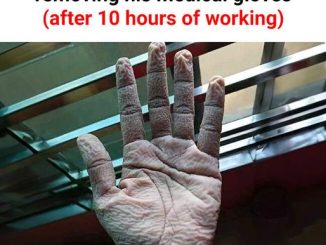
They have recommended that everyone in a household is familiar with the hurricane plans they’ve made. This may include catering for those at work, children’s daycare, and other frequently visited locations such as grocery stores.
Additionally, the government suggests that households should stock adequate supplies. Some recommended items are medications, disinfectants, and pet supplies that are carried in the go-bag or car trunk. Access to these supplies may be limited for days or even weeks after a hurricane.
Households also need to clear drains and gutters, secure outdoor furniture, and consider installing hurricane shutters. It is highly valuable to charge a cell phone and invest in backup charging devices for electronics when a hurricane is forecasted.
2. Stay Informed
In this step, it’s crucial for households to know if they live in an evacuation zone, listed at the end of this article, as they may need to evacuate quickly due to a hurricane. They should familiarize themselves with evacuation routes. They can also practice evacuating with their household and pets, and determine where they will stay.
Households should follow the guidance of local emergency managers, who collaborate with state, local, tribal, and territorial agencies. They will provide up-to-date recommendations based on the specific threats to your community and the necessary safety measures.
3. Check On Your Neighbors
Reach out to your neighbors, especially seniors or those who may require extra assistance, to ensure they have adequate hurricane plans in place. Offer your help in securing their preparations and provide support wherever needed.
4. Stay Out of Flood Water
Households should avoid entering floodwaters, as even six inches of fast-moving water can knock people off their feet. They should prioritize their safety and steer clear of any flooded areas.
5. Turn Around and Do Not Drown
People should be aware that just one foot of moving water can easily sweep away a vehicle. They should stay vigilant and avoid driving through flooded areas. Avoid walking, swimming, or driving through flood waters at all times. When encountering such a scenario, they should turn around.
6. Take Care of Your Mental Health
Lastly, individuals should prioritize their mental health during and after a hurricane. It’s important to acknowledge any feelings of anxiety or stress and seek support if needed. Connect with friends, family, or mental health professionals to discuss your concerns and find coping strategies.
Tampa Mayor Jane Castor has emphasized the need for households to pay attention to the evacuation zones as Hurricane Milton approaches Florida’s west coast. She warned the residents, “I can say without any dramatization whatsoever: If you choose to stay in one of those evacuation areas, you’re gonna die.”
Tampa is located in Hillsborough County. The region has listed compulsory evacuation orders for those in Zones A and B, as well as those who live in mobile homes. Tampa has urged residents of these areas to evacuate as Hurricane Milton is “literally catastrophic.”
Evacuation Zones
Charlotte County: It has issued a mandatory evacuation order for residents in Red Zone-A and Orange Zone-B, including those living in mobile and manufactured homes.
Citrus County: It has given a mandatory evacuation order that began on October 8, 2024, for all residents living in campers, tents, mobile homes, manufactured homes, or any structures unable to withstand sustained winds of up to 110 MPH.
Collier County: A voluntary precautionary evacuation is effective immediately for all residents in Collier County in Zones A and B. This includes west of Airport Pulling Road and south of US-41 Tamiami Trail E.
The order covers mobile home residents and areas with a history of storm flooding. A mandatory evacuation for all of Zones A and B began on October 8, 2024.
DeSoto County: It has issued evacuation orders for Zones A (Red) and B (Orange). These areas affect all residents living in mobile and manufactured homes, as well as those in low-lying or flood-prone areas.
Clay County: Currently, there are no mandatory evacuation orders, but residents in low-lying or flood-prone areas, especially along Black Creek or the St. Johns River, are strongly encouraged to consider relocating for safety.
Hardee County: On October 7, 2024, Hardee County Emergency Management advised residents in low-lying areas, mobile homes, recreational vehicles, and unsafe structures to evacuate as soon as possible.
Glades County: This county has implemented a voluntary evacuation for mobile homes, RV parks, and low-lying areas, which started on October 8, 2024.
Hillsborough County: This county has announced a mandatory evacuation for Evacuation Zones A and B, including all mobile homes and manufactured housing throughout the county, which started on October 7, 2024.
Hernando County: Mandatory evacuation orders for all areas west of US 19, including evacuation zones A, B, and C began on October 8, 2024. This includes all residents in coastal and low-lying areas, as well as those in manufactured homes countywide.
Levy County: A mandatory evacuation is in effect affecting all mobile homes, manufactured homes, recreational vehicle parks, coastal communities, and low-lying areas west of US 19. Hurricane risk shelters have opened at Bronson Elementary for special needs and Bronson Middle High School for general population/pet-friendly evacuations.
Lee County: It has issued mandatory evacuation orders for Zones A and B, urging residents to finalize emergency plans and evacuate as soon as possible. They should aim to be in a safe location by the evening of October 8, 2024.
Manatee County: This county has issued a mandatory evacuation for all residents in Levels A, B, and C, including visitors in RVs or mobile homes, effective October 7, 2024.
Marion County: The Marion County Sheriff’s Office Emergency Management officials have recommended evacuation for residents living in mobile homes, RVs, modular-type homes, and site-built homes constructed before 1994 due to the hurricane’s projected path.
Miami-Dade County: This county has announced a voluntary evacuation center for residents of mobile home parks, opening the E. Darwin Fuchs Pavilion on October 8, 2024, as a pet-friendly evacuation option.
Okeechobee County: A voluntary evacuation has been issued for all low-lying areas and mobile homes starting October 8, 2024.
Pasco County: This county has mandated evacuations for Zone C as the hurricane approaches. Evacuations are required for those in Zones A, B, or C, as well as residents in manufactured homes, RVs, low-lying areas, or structures prone to flooding.
Volusia County: A mandatory evacuation order took effect on October 9, 2024, for all areas east of the Intracoastal Waterway, including residents in manufactured and mobile homes, low-lying and flood-prone areas, as well as campsites and RV parks.
Sumter County: Residents in mobile homes, low-lying areas, or with special needs are strongly urged to consider evacuation or relocating to a shelter when they open.
Sarasota County: Residents in Sarasota County living in Level A or near Level A, as well as those in manufactured home communities or mobile/boat homes, are advised to implement their evacuation plans immediately, whether that involves staying with friends or leaving the area.
Pinellas County: Pinellas County has enacted a mandatory evacuation order for all residents in Zones A, B, and C, as well as all mobile homes. Special needs residents and residential healthcare facilities in these zones are also included in the evacuation order.
Putnam County: A recommended evacuation has been issued for Zones F and A due to concerns regarding high river levels.
Obeying the directives issued by local authorities and noting the evacuation zones ensures that families can evacuate safely and efficiently. This also allows emergency services to respond effectively to those in need.
Did You Know About the Brain-Boosting Benefits of Lion’s Mane Mushroom?

ntroduction to Lion’s Mane Mushroom and Its Benefits for:
Brain Health
Have you ever heard of Hericium erinaceus? More commonly known asLion’s Mane mushroom, it’s gaining popularity in the health community for its brain-boosting abilities. This unique fungus, resembling a white lion’s mane, is delicious and a potent brain booster. In this article, we’ll delve into the incredible benefits of Lion’s Mane mushroom and explore DIRTEA’s exceptional Lion’s Mane products. Discover why DIRTEA is the top choice for those seeking the best in brain health.

What Makes Lion’s Mane Special?
As a cognitive enhancer, Lion’s Mane is praised for its ability to improve memory, creativity, and focus. But what exactly makes it so special? The answer lies in its one-of-a-kind bioactive compounds:
- Hericenones: These are found in the fruiting body of the mushroom.
- Erinacines: These are primarily located in the mycelium (the vegetative part of the fungus).
These compounds play a crucial role in promoting brain health.
The Connection Between the Brain and Lion’s Mane Mushroom
Lion’s Mane has been associated with enhanced brain function through various mechanisms. It has been said to stimulate the production of nerve growth factor (NGF), which is essential for the maintenance and regeneration of neurons. This means that consuming Lion’s Mane could potentially improve learning and memory. In short, adding Lion’s Mane to your diet might be the natural brain boost you’ve been looking for!

Lion’s Mane Mushroom’s Potential to Improve Cognitive Function
The magic of Lion’s Mane mushroom goes beyond just neurological health; it also excels in improving cognitive function. This incredible fungus is known for its ability to enhance focus, memory, and mental clarity.
Boosting Focus and Mental Clarity
It can be frustrating to feel unfocused and like your mind is running a million miles per hour. That’s where Lion’s Mane comes in. It’s been shown to help improve focus and mental clarity, making complex tasks feel easier.
- Focus: Users often report being able to concentrate better on tasks without getting distracted.
- Mental Clarity: Say goodbye to brain haze. With regular use, many find that their thinking becomes sharper and clearer.
Memory Enhancement
Lion’s Mane doesn’t just help with current tasks; it also supports your ability to remember past information. Studies suggest that this mushroom can significantly improve memory retention and recall abilities.
- Short-term Memory: For those times when you need to remember where you put your keys or recall a shopping list.
- Long-term Memory: Assisting in preserving and retrieving older memories more effectively.

Scientific Evidence
Numerous studies support the cognitive benefits of Lion’s Mane mushroom:
- In a 2009 study published in the Journal of Phytotherapy Research, participants who consumed Lion’s Mane showed significant improvements in cognitive function compared to those who received a placebo.
- Another study from Biomedical Research highlighted how daily intake of Lion’s Mane resulted in better performance in recognition memory tests over 16 weeks.
- A research article in Phytotherapy Research highlighted that older adults who took Lion’s Mane supplements experienced significant enhancements in mental functioning over the course of several months.
With these encouraging results, adding Lion’s Mane to your diet could be a proactive measure to support brain health and memory.
How It Works
The exact mechanisms by which Lion’s Mane may improve cognitive function are still being studied. However, there are several theories:
- Increased NGF Production: Lion’s Mane has the potential to boost levels of nerve growth factor (NGF), which is essential for the growth and maintenance of neurons.
- Enhanced BDNF Levels: Brain-derived neurotrophic factor (BDNF) plays a crucial role in learning and memory. Higher levels of BDNF may contribute to improved synaptic plasticity, supporting better cognitive functions.
Lion’s Mane is a unique mushroom that shows promise as a natural cognitive enhancer. While more research is needed to fully understand its effects, it has shown potential in sharpening focus and boosting memory.
Utilising Lion’s Mane Mushroom Powder for Optimal Brain FunctionLion’s Mane mushroom powder is an excellent choice among different types of supplements available for cognitive enhancement. When it comes to how well the body can absorb it, each type of Lion’s Mane product has its benefits. Here’s a quick overview:
- Capsules and Tablets are convenient and easy to take, but they may contain extra ingredients that can affect how well the body absorbs the mushroom.
- Tinctures: Liquid extracts are quickly absorbed, though they often have a strong taste.
- Powders: Highly versatile, allowing you to add them to various meals and drinks. They are directly absorbed by the body without any extra ingredients.
- Gummies: An alternative option for those who prefer a more convenient and enjoyable way to consume Lion’s Mane. Gummies are easy to take on-the-go and often come in delicious flavours. However, it is important to choose high-quality gummies that contain a sufficient amount of Lion’s Mane extract for optimal brain health benefits.

Why Choose Lion’s Mane Mushroom Powder for Brain Health?
Scientific research supports the cognitive benefits linked to Lion’s Mane mushroom powder. Studies have shown that the active compounds in Lion’s Mane—specifically hericenones and erinacines—can stimulate the production of nerve growth factor (NGF), which is important for keeping neurons healthy and maintaining cognitive function.
Using this powerful nootropic as part of your daily routine might help improve:
- Memory retention
- Mental clarity
- Focus and concentration
Using Lion’s Mane mushroom powder offers practical benefits alongside strong brain-boosting effects, making it a great addition to any cognitive health routine.
Considering the Quality and Safety of Lion’s Mane Products
When exploring Lion’s Mane mushroom supplements, it’s crucial to prioritise quality control. Here are some things to consider:
Important Factors to Look For
- Source of Mushrooms: Make sure your Lion’s Mane is grown organically, without pesticides or contaminants. Was it picked from the wild or cultivated in a controlled environment? Both can be great options if done correctly.
- Extraction Method: How the mushrooms are extracted affects how easily your body can absorb the beneficial compounds. Look for dual-extracted products, meaning they use both water and alcohol to get the full range of goodness.
- Third-Party Testing: Ensure products are tested by independent labs to confirm purity and strength. They should have certificates of analysis (COAs) available for you to see.
DIRTEA Lion’s Mane Mushroom Quality
When it comes to buying Lion’s Mane supplements, quality and reliability are crucial. That’s where DIRTEA comes in as a trusted supplement. DIRTEA has a reputation for maintaining high standards in product quality and customer satisfaction.

Why Choose DIRTEA Lion’s Mane Mushroom Powder?
Here are some compelling reasons to choose DIRTEA Lion’s Mane mushroom powder:
- Pure Ingredients: DIRTEA Lion’s Mane mushroom powder is made from 100% organic mushrooms, ensuring that you get all the natural goodness without any unwanted additives.
- Fruiting Body: We use 100% fruiting bodies in our powder, no mycelium or grains.
- Enhanced Bioavailability: DIRTEA’s processing techniques enhance the bioavailability of its Lion’s Mane supplements, ensuring that your body can absorb and utilise the nutrients effectively.
- Lab-Tested for Quality: Every batch undergoes rigorous third-party lab testing for purity and potency, ensuring a product that meets high-quality standards.
- Sustainable Practices: Committed to environmental sustainability, DIRTEA uses eco-friendly, family-owned farming practices and recyclable materials.
- Customer-Centric Approach: DIRTEA’s customer service means you can expect guidance and support throughout your wellness journey.
Advantages of Using Lion’s Mane DIRTEA Mushroom Powder
The versatility of Lion’s Mane mushroom powder makes it an appealing option for brain health enthusiasts. Here are some compelling benefits:
Ease of Use:
- Add to smoothies, coffee, or tea.
- Mix into soups or sprinkle on salads.
Enhanced Absorption:
- Powders provide a more direct form of the mushroom’s bioactive compounds, potentially leading to better absorption compared to capsules or tablets.
Customisable Dosages:
- Adjust your intake easily based on your specific needs.
- Ideal for those who want control over their supplement regimen.

By choosing DIRTEA Lion’s Mane mushroom powder, you’re investing in a product crafted with care and precision designed to support optimal brain function. Whether you’re looking to boost cognitive performance or support overall brain health, DIRTEA products provide an effective solution backed by scientific research.
Incorporate DIRTEA’s high-quality Lion’s Mane mushroom powder into your daily routine for a natural and potent nootropic aid. Experience the difference between choosing a trusted brand dedicated to enhancing your well-being through nature’s finest offerings.
Alternative Option: DIRTEA Lion’s Mane Gummies
If you’re not a fan of mushroom powder, don’t worry! DIRTEA has an alternative for you – Lion’s Mane gummies. These gummies offer the same brain-boosting benefits as the powder but in a more enjoyable form. Bursting with a high dosage of 2,400mg of Lion’s Mane, Vitamins B12 and B5, these apple-flavoured gummies pack a punch. When taken daily, our Lion’s Mane Gummies support cognitive function, memory, nervous system regulation, and mental clarity while also helping to reduce tiredness and fatigue.

Why Choose Lion’s Mane Gummies?
- Convenience: No need to measure or mix anything. Just grab a gummy, and you’re done.
- Taste: Only some people like the earthy taste of mushrooms. These gummies are delicious and make taking your daily dose a treat.
- Portability: Easy to take with you wherever you go. Throw a few in your bag and stay sharp on-the-go.
- Vegan, Sugar-Free, Non-GMO: Suitable for various dietary preferences.
- Natural Apple Flavour: Enjoy the pleasant taste while reaping the benefits.
- 30 Servings: Each bottle contains 30 servings, with two gummies per serving.
- Vitamin B12: Supports the normal function of the nervous system, sustains healthy nerve cells, and supports cognitive function and brain health.
- Vitamin B5: Essential for energy metabolism and skin health, and helps reduce tiredness and fatigue.
“These gummies are so convenient! I can just grab one whenever I need a mental boost.” – Sarah, busy professional.

Quality You Can Trust
DIRTEA is committed to providing top-notch products. Their gummies are made with high-quality Lion’s Mane extract, ensuring you get all the beneficial compounds for your brain health.
“I love knowing that I’m getting the best Lion’s Mane extract in these gummies. It gives me peace of mind.” – David, health enthusiast.
Whether you prefer the classic Lion’s Mane mushroom powder or want to try something different with the gummies, DIRTEA has options for everyone.
Potential Risks and Side Effects of Low-Quality Products that Competitors Sell
It’s important to be aware of the dangers of using subpar supplements:
- Contaminants: If the mushrooms used in the supplement aren’t carefully sourced, they could contain harmful substances like heavy metals or mycotoxins. These are definitely not what you want in a product that’s supposed to boost your brainpower.
- Additives and Fillers: Lower-quality products might contain unnecessary extra ingredients or fillers, and some may even contain synthetic substances. Always check the ingredients list.
- Ineffective Dosage: If the supplement isn’t concentrated enough, you’re paying for something that doesn’t do much. It’s important to have an effective dosage based on scientific research.
By paying attention to these factors, you can ensure that your experience with Lion’s Mane, as a mushroom known for its potential cognitive benefits, is safe and worthwhile.
Incorporating Lion’s Mane Mushroom Into Your Daily Routine
Lion’s Mane mushroom is an easy addition to your daily regimen, and its brain-boosting benefits make it worth the effort. For those curious about the ideal intake, let’s break it down.
Recommended Dosage
The suggested dosage is 2g of Lion’s Mane mushroom powder daily for cognitive benefits. This amount can be adjusted depending on individual responses and needs.
Enhancing Effects To Maximise its Impact
- Stacking With Other Nootropics: Pairing Lion’s Mane with other mushroom powders or nootropics can create a synergistic effect, enhancing overall cognitive function.
- Healthy Lifestyle Habits: Incorporate habits such as regular exercise, adequate sleep, and a balanced diet rich in omega-3 fatty acids. These practices support brain health and amplify the effects of Lion’s Mane.
For convenience, mix the powder into your morning smoothie, coffee, or even sprinkle it over breakfast cereals. Keeping it consistent will help you notice its full potential over time.
By integrating this powerful mushroom into your routine through thoughtful combinations and lifestyle choices, you’re setting up a robust foundation for daily enhanced cognitive performance.

Why not try Lion’s Mane mushroom powder today and experience these benefits first-hand? Your brain will thank you. With its potential to improve memory, focus, and overall brain health, Lion’s Mane mushroom powder offers a natural solution for those seeking cognitive enhancement. The convenient powdered form makes it easy to incorporate into your daily routine, ensuring consistent benefits over time. Don’t wait any longer – take this opportunity to support your brain health and unlock your mental potential with Lion’s Mane mushroom powder.
FAQsHow does Lion’s Mane mushroom powder improve brain health?
Lion’s Mane mushroom powder has the potential to improve memory, focus, and overall brain health. It contains compounds that support cognitive function and may enhance neural pathways in the brain.
How should I consume Lion’s Mane mushroom powder for optimal results?
For convenience, mix the powder into your morning smoothie or coffee or sprinkle it over breakfast cereals. Consistent consumption will help you notice the full potential of Lion’s Mane over time.
Are there any safety concerns regarding Lion’s Mane products?
When considering Lion’s Mane products, it is important to ensure their quality and safety. Look for reputable brands that prioritise rigorous testing to guarantee purity and absence of contaminants.
What sets DIRTEA Lion’s Mane Mushroom apart in terms of quality?
DIRTEA Lion’s Mane Mushroom is known for its high-quality standards. It undergoes strict quality control processes to ensure purity and maximum effectiveness. The mushrooms are organic and handpicked from small, ethical, family-owned farms.
How can I incorporate Lion’s Mane mushroom into my daily routine?
To incorporate Lion’s Mane mushroom into your daily routine, consider consuming it alongside other supplements and incorporating it into your daily routine, as consistency is key to ensuring the benefits are gained.
Remember to consult with a healthcare professional before making any significant changes to your routine or starting any new supplement regimen.



Leave a Reply